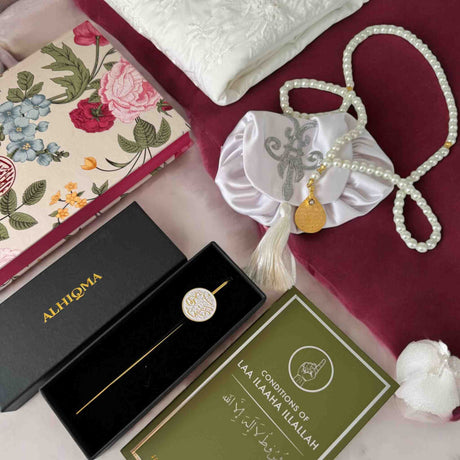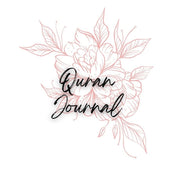Key Takeaways:
- Powerful Connection with Allah: Dua strengthens the believer’s bond with Allah, reminding us of His mercy and ability to provide knowledge, wisdom, and ease.
- Calling on Allah’s Names: Invoking Allah's names, Al-Wahhab (The Bestower) and Ar-Razzaq (The Provider), acknowledges His infinite generosity and provision.
- Practical Application in Daily Life: This dua is particularly useful when seeking guidance, pursuing knowledge, or overcoming difficulties, offering spiritual and practical support.
Dua, the simple act of asking Allah for what we need, is a powerful tool in every believer's life. Through dua, we connect directly with our Creator, expressing our hopes, concerns, and aspirations. Among the many beautiful supplications is the dua "Wahab li ya Wahhab ilman wa hikmatan warzuqni ya Razzaq kulli musahala," which translates to:
"O Bestower, grant me knowledge and wisdom, and O Provider, provide for me every ease and simplicity."
In this blog, we'll explore the significance of this profound dua, when and why you should make it, and how it can impact your daily life.
Breaking Down the Dua: Word by Word
Each word in this dua carries deep meaning:
- Wahab li (Grant me) – We begin by asking Allah, the Most Generous, to bestow upon us something precious.
- Ya Wahhab (O Bestower) – Calling upon Allah with His name Al-Wahhab, we recognize that He is the one who gives generously without limit.
- Ilman wa hikmatan (Knowledge and wisdom) – These two gifts are essential for making sound decisions and living a life guided by understanding. Knowledge opens the door to learning, and wisdom allows us to apply that knowledge in the right way.
- Warzuqni (And provide for me) – Here, we ask Allah to grant us provision, not only in terms of wealth but in everything that makes life easier.
- Ya Razzaq (O Provider) – By calling on Allah’s name Ar-Razzaq, we seek sustenance in all forms, trusting that He will provide for us in both material and spiritual ways.
- Kulli musahala (Every ease and simplicity) – Finally, we ask Allah to make all things easy for us, to smoothen our path and remove obstacles, be they emotional, mental, or physical.
When to Make this Dua
This dua is versatile and can be recited at any time. However, there are certain moments in life where it holds special significance:
- Before important decisions: Whether it’s choosing a career path, making a family decision, or planning for the future, this dua helps us seek guidance, clarity, and ease.
- During times of difficulty: When life becomes overwhelming, asking for wisdom and ease allows us to navigate challenges with patience and understanding.
- Before studying or seeking knowledge: This dua is especially beneficial for students or anyone pursuing knowledge. By asking for both knowledge and wisdom, we seek not only to learn but also to understand and apply that knowledge correctly.
There are also specific times that are considered more spiritually beneficial for making dua, such as during the last third of the night (Tahajjud), after obligatory prayers, or between the Adhan and Iqama.
The Significance of Allah’s Names: Al-Wahhab and Ar-Razzaq
In this dua, we call upon two of Allah’s beautiful names: Al-Wahhab (The Bestower) and Ar-Razzaq (The Provider). Both names reflect Allah’s infinite generosity and mercy.
- Al-Wahhab gives without limits. When we ask Allah for knowledge and wisdom, we are seeking gifts that are not just beneficial in this world but are also pathways to eternal success.
- Ar-Razzaq is the one who provides for all creation. By asking Allah for ease, we are putting our trust in His ability to remove obstacles and make our lives manageable, no matter the challenges we face.
How This Dua Can Change Your Life
Incorporating this dua into your daily routine can lead to both spiritual and practical benefits. By regularly asking Allah for knowledge, wisdom, and ease, you open yourself to receiving guidance in every aspect of your life. You’ll find that seeking knowledge becomes easier, and the decisions you make are more thoughtful and grounded.
Moreover, making this dua regularly helps cultivate reliance on Allah. It serves as a reminder that, while we make efforts, ultimate success comes from Him. It encourages us to pursue goals with confidence, knowing that we have asked for the necessary tools to succeed—knowledge, wisdom, and ease.
A Prayer for Personal Growth
This dua is also a powerful reminder that growth—whether intellectual, spiritual, or emotional—requires both effort and divine help. As we seek to improve ourselves, we acknowledge that true wisdom comes from Allah and that we need His guidance in every step of our journey.
When you make this dua, think about the ways in which you seek to grow. Whether it’s learning a new skill, developing a deeper understanding of your faith, or seeking ease in a difficult situation, this dua can be your anchor in times of uncertainty.
Making Dua a Habit
Dua is one of the simplest, yet most profound acts of worship. It connects us to Allah and reminds us of our dependence on Him. By regularly making the dua
وَهَبْ لِي يَا وَهَّابُ عِلْمًا وَحِكْمَةً، وَارْزُقْنِي يَا رَزَّاقُ كُلَّ مُسَهَّلَةٍ
Transliteration:
"Wahab li ya Wahhab ilman wa hikmatan warzuqni ya Razzaq kulli musahala," you are not only asking for knowledge, wisdom, and ease, but also strengthening your relationship with your Creator.
So, the next time you find yourself seeking clarity, knowledge, or a way out of a tough situation, turn to this beautiful dua. And remember, Allah’s gifts are limitless for those who ask.
Frequently Asked Questions:
Q: What is the meaning of the dua "Wahab li ya Wahhab ilman wa hikmatan warzuqni ya Razzaq kulli musahala"?
A: It means, "O Bestower, grant me knowledge and wisdom, and O Provider, provide for me every ease and simplicity." It is a prayer for divine guidance and relief in all aspects of life.
Q: When is the best time to recite this dua?
A: This dua can be recited anytime, but it holds special significance when seeking knowledge, making important decisions, or facing difficulties. Times like during Tahajjud or after obligatory prayers are also spiritually beneficial.
Q: What is the significance of calling on Allah’s names Al-Wahhab and Ar-Razzaq?
A: Al-Wahhab refers to Allah as the one who bestows gifts without limit, and Ar-Razzaq highlights Him as the provider of all sustenance. By invoking these names, we seek Allah’s endless generosity and provision.
Q: How can this dua impact my daily life?
A: Reciting this dua regularly helps increase your reliance on Allah, seeking His guidance in knowledge, wisdom, and ease. It encourages thoughtful decision-making and brings spiritual peace.
Q: Can this dua be recited for studying or work-related challenges?
A: Yes, this dua is ideal for those pursuing knowledge, whether in studies or work. It asks Allah for clarity, understanding, and simplicity in tasks, making it beneficial for personal growth and professional success.












